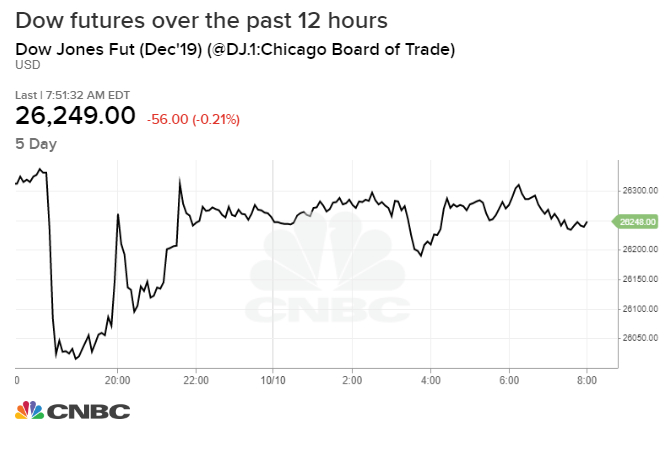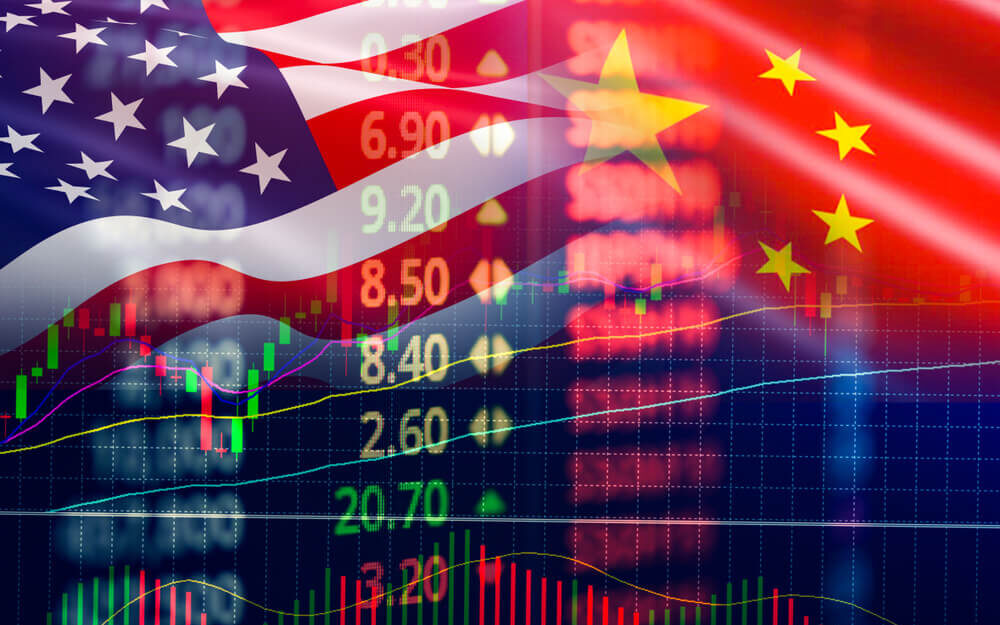President Donald Trump announced he would meet with Chinese Vice Premier Liu He on Friday, sending the stock market higher on hopes that progress toward a trade deal would be made.
Tensions between the world’s two largest economies have been on a roller coaster over the past few months as both the U.S. and China used tariffs and other tactics as leverage against each other. Trump’s tweet announcing he will “meet with the Vice Premier tomorrow at The White House” could be a positive development, though.
Big day of negotiations with China. They want to make a deal, but do I? I meet with the Vice Premier tomorrow at The White House.
— Donald J. Trump (@realDonaldTrump) October 10, 2019
Wall Street, which has risen or sunk on every headline about the trade war, shot up after the tweet. The Dow Jones Industrial Average was up 251 points, or 0.9%, at one point. The S&P 500 and Nasdaq composite also increased by 1% before falling back down a bit just before the closing bell.
It was a big recovery from overnight trading, where Dow futures plummeted 300 points after a report from the South China Morning Post said China’s vice premier was planning to leave on Thursday night instead of the original plan for Friday — dashing hopes of an amicable visit.

But a White House spokesperson told CNBC the report was inaccurate, sending markets upwards again.
There’s reason for more trade optimism, too, as Liu told Xinhua, a Chinese state-run media outlet, that China is coming with “great sincerity” for the talks.
“The Chinese side has come with great sincerity and is willing to make serious exchanges with the U.S. on issues of common concern such as trade balance, market access and investor protection, and promote positive progress in the consultations,” Liu said.
Trump and Liu had good breakthroughs during meetings earlier this year. In January, negotiations led to China purchasing more American soybeans, and tariffs were delayed further after a February meeting.
It’s not all roses, though. Earlier this week, the two countries were in a spat after the U.S. blacklisted 28 Chinese entities and restricted the visas of Chinese officials after alleging human rights abuses against Muslim minorities. China responded with their own planned blacklist that has yet to be announced.




